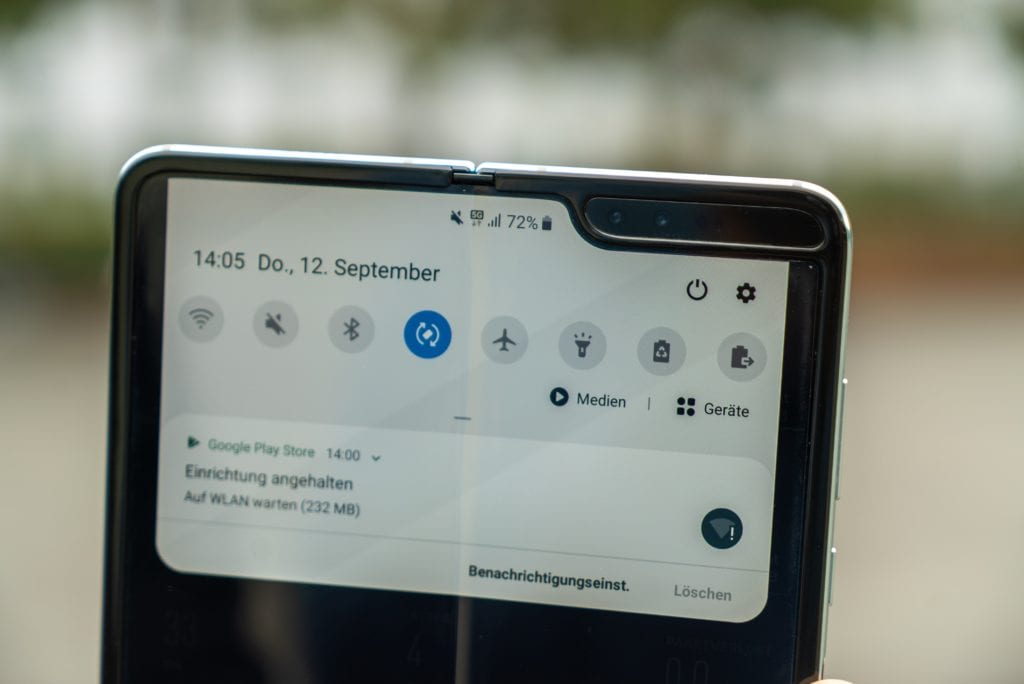Welcome to another episode of #EventIcons, and this time around we’re talking 2020 event tech trends! If you know Endless, you know we love talking about event tech. So much so, we have another podcast entirely dedicated to the topic. And we thought this would be a great opportunity to bring you a crossover episode. In recent past episodes, we covered several 202o trends in the industry, including marketing and design. So now it’s time for the 2020 event tech trends to shine!
Joining our amazing hosts Will Curran and Lindsay Martin-Bilbrey are two veterans of the show. We’re very happy to once again welcome Corbin Ball and Jim Spellos. Make sure you take some time to check out the previous episode where we had the pleasure to welcome these incredible people. And once you’re done, feel free to press play and join us on this 2020 event tech trends focused conversation!

Starting Off With The Big Questions
Lindsay immediately asks our guests about the two biggest trends for event profs will be in 2020. “One of the things on my mind is the revolutionary change, the impact of artificial intelligence”, says Corbin. “The 90s were a development. It was the decade of email. The 2000s was the decade of the advancement of the web. This last decade was the advancement of mobile technology and deep implementation. This coming decade will be… One of the greatest technology trends will be the implementation of artificial intelligence”.
“And this covers a really wide range of fields from artificial, from facial recognition to chatbots to marketing automation to”, he continues. “The list goes on and on. We can go into it, but I think that’s going to be one of the biggest things that’s happening. The other, on a broad term, is the impact of data management. And the ability for software integration and for things to work together in a better way than they have before. We’ve lived in data silos for the last 30 years of event technology. And although it will continue to have some impact with that, it’s getting better all the time, and the movement toward that deeper integration is one of the things I think will have a big impact”.
Is AI Really That Far?
Jim echoes the AI sentiment. “I mean, it’s a huge, huge part of what’s happening. Chatbots, facial recognition, everything Corbin said. I think the issue though is a lot of people on the planner side don’t understand that they’re already using a lot of that already. I think the supplier side has a better grasp of it in our industry. And I also think there’s a lot of unknown and a lot of fear. And I think part of what I’m going to talk about today is not just the tools that are out there. But the inherent privacy, security conundrum that we’re all dealing with, with all of this stuff and how we’re going to be able to manage through that. And which technologies are going to be able to push forward quickly and which technologies are going to have to take a few steps back”.
“Because this decade, I’m not sure really anything is going to explode this year. I think we’re still in the setup yea”, he adds. “I am so with Corbin on AI. The other thing that’s coming and isn’t going to be here in terms of any huge impactful way is going to be 5G. And to me, 5G is going to be the Amazon web services of this decade. Most people won’t even think about it, but it’s going to fire and drive everything that’s going to be taking place, from the autonomous vehicles and the lower latency of almost anything, to even a better, more sophisticated AI”.
Looking Back At 2019 Tech Trends
“Last year on the episode, you guys were worried about limiting that entrepreneurial and innovation and creativity in the Event Tech space”, Lindsay recalls. “Because money is driving a lot of product decisions and development. But not always in necessarily the way that the event managers and the event companies are comfortable with. That level of risk, that level of privacy and data collection. So from an industry consolidation perspective, do you think it’s done? We’re at a point where there’s no more money movement or should we be prepared for more in 2020?”.
“No, we’re not done at all”, says Jim. “And I don’t think it’s actually for the better that it’s going to continue either. The bottom line is, it does hinder creativity. But when some of these people are getting out because they’ve been bought out, what are they going to probably do? They’re probably going to go back in and find another way to impact our industry. So that tech consolidation, not over by any means. And I do think that the big conglomeration approach is cyclical, and we might be toward a middle to end of that cycle. And hopefully, we’re going to see a lot more small folks coming up and making huge impacts. And I think though, the lay of the land with the coming technologies might be setting the stage for that”.
Space For More In 2020 Event Tech Trends
“I think the half-life of technology is much shorter than it ever has been, which means there’s going to be more new technologies that are going to be doubling”, says Jim. “And things like event apps, it’s an old school conversation. It’s a conversation we shouldn’t be having right now. I don’t think anything new has happened in that stage in a couple of years. And I know people will kill me for that statement, but I look at it as evolutionary right now and not yet revolutionary again”.
He adds that “the conversation we’re having here is for about 15% of the industry. I think the majority of the industry is at a point where they’re just struggling to get an app or something like that. So it’s really almost interesting that our conversation is pushing that envelope so hard, when does it really have an impact for a large percentage of the people that would be interested in, what can I use today to make my job, my conferences, my events better?”.
 2020 Event Tech Trends: 5G
2020 Event Tech Trends: 5G
What other 2020 event tech trends will shape the decade? 5G has been hailed as the next big thing. So it’s only fitting that we get the opinion of the experts! “I think that 5G has great potential. It’s not going to happen this next year. Fully happen this next year or the next few years for the events industry, I think”, says Corbin. “But it’s a high speed, greater security, there’s a lot of benefits to it. It will become ubiquitous in the next five years when everybody updates their phones”.
The Challenge Of Venues
“The challenge I see is with venues”, he continues. “And they face the same dilemma as to when mobile phones came through and they couldn’t sell their wired phones anymore. Venues have invested, especially convention centers, they’ve invested millions and millions of dollars on their wifi infrastructure. Which is getting better with WiFi six coming around. The hardest place for 5G to be implemented would be in convention centers with all the walls, underground”.
“But convention centers are difficult to do. And with the placement of antennas that require many more antennas because it’s a shorter range and a higher frequency. And it just doesn’t penetrate walls as well. So these convention centers are going to have to invest very large amounts of money to implement it throughout the facility. At the same time they’re competing with their own wifi network, and that, I think, is going to delay that progress. We are going to see it in public spaces. We’re going to see it in arenas, we’re going to see it in lots of places. But I think one of the laggards may be convention centers and hotels”.
When Will 5G Come?
“It will be in this decade”, says Corbin. “I think it’s going to be five years before we really see that implementation, but it’s definitely going to be this decade. And this is one of those types of technologies that are going to fundamentally change how society works. I mean, everybody has 4G now, it’s in and we’re used to it. This one is going to be a big step forward”.
“People don’t realize what really is going to change and the speed difference. And more importantly, the latency difference that the 5G network is going to offer people”, adds Jim. “There’s going to be no lag time anymore. As long as that promise comes to pass”.
Storytelling & 2020 Event Tech Trends
A member of the audience wonders if all this shiny new technology will impact storytelling. “Are the event designers going to forget about all of this and just case it to make it look pretty?”, he wonders. And when it comes to this point, Jim promptly says no. “It’s all about the story. It always has been and it always will be, no matter what type of technology we have. The storytellers that are going to get the advantage though, are going to be able to utilize the technology, integrated seamlessly at a faster pace. But that’s a separate conversation. Storytelling is alive and well and will continue to be”.
“However, as with our meetings were in the last decade, some of the events, some of the event organizations that were able to integrate the technology quicker got the upper leg, were able to market themselves better”, he continues. “The ones that grabbed onto social media 10 years ago, it’s the same thing. It’s just going to be another tool and I think it really is not going to have a huge impact on the storytelling. Because as Corbin mentioned, the storytelling’s going to become more hyper-personalization, as we really see an event being a place where I can choose the program I want”.
Machine Learning & AI
Machine learning and Artificial Intelligence are obviously two huge 200 tech trends, and two topics that we’ve covered extensively in past blogs. So let’s jump right into what Jim and Corbin have to say.
Corbin’s Take
“Well, this is one technology that has so many different paths. And a lot of times it’s behind the scenes with marketing automation. AI is playing a huge component of it but directly for events. You have the ability with Wordly, for example, using AI you can translate into 15 different languages simultaneously. And so this really opens up and even for people with hearing impairment, you have just their natural language, that capability that would not have been possible before”.
“Using facial recognition for expedited registration is a possibility that is happening right now. I think one of the hot areas that we’re seeing is in the area of anonymous tracking of audiences, and there are a few companies out there that have done a lot of work in the area of facial recognition. But there is another one that is using that for putting in the booth. It’s a simple iPhone app that you can measure attendee well time and standing in front of the booth. How long they’ve been there, their age, their average age, their gender and what they’re looking at, what they’re interested in, in that specific booth”.
“There’s using chatbots for improved support and lowering staff costs. Text is the most widely used app by far on a smartphone, and to be able to use chatbots to help that, that uses artificial intelligence for matchmaking. It’s another example, and there are a number of companies out there who grew up this one. And then the increased personalization and content distribution and improve data analytics and collection. All of these things are part of what AI can provide”.
Jim’s Take
“I want to take this conversation to two different levels. I want people to understand that what you have in AI and what people are scared about in AI, or two different types of AI, two different concepts within the AI area. Because what Corbin’s talking about is what’s known as narrow AI. Which means it’s dealing with a particular single issue such as facial recognition, or the great work that Wordly is doing. And it’s being able to teach the system, have the machine learning well enough to be able to figure out stuff on its own in that narrow area. But then we get the singularity folks, the gloom, and doomers who are talking about AI on a general basis where it’s going to actually take over the whole planet. Ain’t going to happen, gang, in our lifetime”.
The Fear
“However, it may take over parts of your job. You have to be very aware of all of the tools that a machine can do that a human can’t. This is why storytelling, by the way, is never going to go away, is that it is going to be one of those things that’s very human. All that said, the minute I heard the facial recognition conversation, I think it’s really so cool. To me, that is one of the absolute debilitating points when you talk to planners about whether they would want it, whether they want it at their event, whether they’d be open to it. Scared, terrified about what you’re going to do with that picture”.
“They already know what’s happening and what happened with Facebook, it’s happened with all of these companies in terms of tracking and data brokers and all that, so all of a sudden you bring in that facial part to it and they don’t realize how sophisticated it already is. I think that’s a part right now that you’re going to have an awful lot of pushback, from not only planners but the attendees at these conferences. And that might be one of these major areas where the whole security privacy conversation does come to the forefront”.
 Data, Transparency & Safety
Data, Transparency & Safety
“I don’t want the government to be using facial recognition to track me. So, there are some significant issues in terms of privacy”, says Corbin. “But when you go to events, it’s not about privacy, it’s about connecting. You wear your name badge around your neck. It’s about sharing with people. And if you can expedite that process by a registration system that doesn’t track your face, it tracks the geometry of your face and then it’s discarded at the end”.
“And I think it’s really important for, with any type of data, that anybody who’s collecting data about you at an event, they need to be transparent about what it is and give the option to opt-out of that data collection with that. So I think that there are some issues we deal with. But in terms of if you want to speed up that process… and people can elect not to use their face with that, and they can wait in line a lot longer. But I think that if you can have this fast, easy, slick registration process in the same way that you get on an airline, that is going to win over, my belief is”.
What About Trust?
“Functionally, you’re so right, there’s no question about it. But I think the issue at a certain point is, do I really trust what’s happening with all this information?”, Jim says. “And I don’t also think that people understand the difference between privacy and security. And I believe that what’s happening in the event is you don’t want to be private, you want to be out there because you want to network. But at what point does that privacy, security conversation, all of a sudden tip, so it’s not a privacy conversation anymore?”.
“Which to me, I gave up my privacy 20 years ago. Great. You want to know about me, you go online. You want to know about Corbin, you go online. But the security right now is still something I need to hold near and dear”, he adds. “And I really hope that if anything comes over these types of conversations, is that we can get out to people what that difference is and how important the security is while being able to use these tools in a way that does allow us to facilitate and expedite what we want to accomplish”.
2020 Event Tech Trends: AR & VR
Much like AI, Augmented Reality and Virtual Reality are topics we’ve covered many times before. And this time, we get to hear Jim and Corbins’ perspective on it!
Jim’s Take
“I put the VR on, but really where it’s all at is AR. VR is going to have a niche. VR is going to have a really strong niche and it’s going to be about training. And you can see a lot of companies already spending a lot of money to optimize and personalize an experientialist training. I think overall the effect of augmented reality, the next big game-changer are the glasses that are coming out within the next six months to two years, depending on who you believe out there. But the fact that 10 years ago, five years ago, we weren’t ready for Google glass”.
“But now the ability to really take that and integrate with information and create a better networking experience. Better communication experience, I think is so exciting. And to me, I mean, for every one app I download that’s not AR, I probably download three or four that are. Because I really want to see where that’s going. And I do love the fact that it’s also being brought to a DIY approach. We have a lot of companies including Roar and Zap and Blippar, that you can build your own AR on a shoestring budget. And at least be able to figure out what the value is, so you can upsell it to your bosses, and upsell it to your committees and they can start to see what the benefits are”.
Corbin’s Take
“I think that VR does have some important implementations. One is as you mentioned, site inspections, and the cost for that is coming down dramatically. In fact, it’s been driven by the real estate industry and they’re hoping to go to Airbnb’s to be able to very inexpensively photograph and stitch together meeting spaces, and living spaces together. And that’s coming to events”.
“But also for booth and stage set design, walk through it and see exactly what it’s going to be like. And then also for room diagrams, it’s just another natural one for virtual reality. I agree that the challenge with VR, it’s immersive. It takes you away from where you’re at. And for booth demos, that’s fine”.
“But augmented reality is in real life and so that you can supplement what you see. And I think that there are many applications you’re starting to see this come into, mobile event apps incorporated into that. You have that component of it. But also you have augmented reality walls. You have projection mapping. And you have telepresence projecting a speaker on stage. These are all aspects of augmented reality that I think are really going to change how we’re doing things in substantial ways”.
The Question To End All Questions
And to end this 2020 event tech trends episode with a bang, Will wants to know if this is the year “we see a fully integrated event management platform where the event manager can control all the aspects of the project from one platform? Literally the one ring to rule them all”. Tricky! Let’s hear what our guests have to say.
Corbin Says…
“This is not the year for that”, says Corbin. “One size does not fit all. This is an enormously complex task to do, to begin with. And I think we’ve come a long way. We’ve lived for the last 30 years of event technology and data silos, and this is starting to change. And one is these consolidations of different companies and they’re working. And these major companies, they’re not there yet”.
“But then you have the Fuzion, the project by Freeman“, he adds. “They have 95 companies in there, working on sharing standards. We’re making progress in this way, and it may not be the single, fully integrated event management product. It may be that you have multiple products that you can work together and stitch together in a way that’s going to work and get the data that we need. It’s all about capturing that data and being able to consolidate that. And bringing that back into an individual record to track what their journey is, so you can better personalize that for future events. But on a collective basis to better improve the event”.
Jim Says…
“Thirty years ago, I remember when our industry got into a huge conversation about standardized contracting. And it was a hot, hot topic in the late eighties, early nineties and it was the best thing in the world to make it easier. I know I, and a number of people, were laughing during this conversation saying there’s no way in the world that’s ever going to happen because everyone has their specific needs and specific things that they have to take care of, within their contract”.
“And I make that akin to the conversation now about the one platform. Every single organization is doing something really good, doesn’t necessarily want to give that up or only on their terms to be able to share that data seamlessly, effortlessly, so there’s no issue to the planner. My take on it is I’m not even watching the space because it’s not worth my time. There are a lot more important things to really focus on in the sphere of technology”.
Conclusions
And that’s a wrap on this week’s episode of #EventIcons! Hopefully, you have your notebook filled with the 2020 event tech trends that you can’t wait to see happen. Is there anything else you’re excited about? Make sure you let us know, and don’t forget to tune in next week for more iconic conversations!
Resources
Insta One 360










